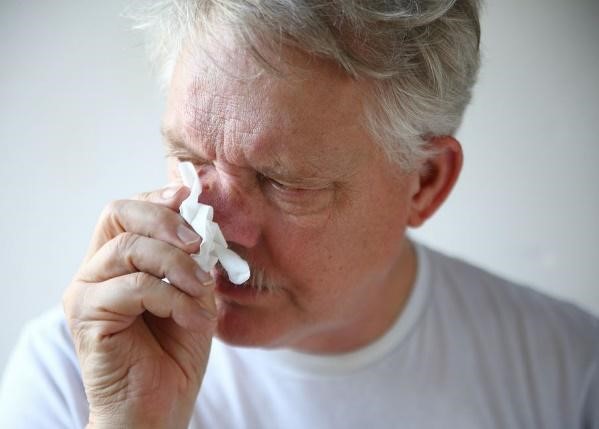Table of Contents
Tips, Tricks, and Products to Remedy Nasal Dryness with CPAP
CPAP therapy helps in the treatment of obstructive sleep apnea (OSA). The treatment procedure involves wearing a CPAP mask connected to the CPAP machine to provide a steady and constant air pressure.

Amid realizing the benefits of CPAP therapy, some patients often deal with uncomfortable and troublesome nasal dryness because of CPAP. That is because the gas flow of CPAP therapy may make it difficult for the nasal airway to maintain sufficient humidity and warmth. Consequently, the CPAP user can lose moisture in their airways. Eventually, a CPAP user may start exhibiting symptoms of inflammation, upper airy dryness, and CPAP machine side effects dangers including:
- Bleeding Nose
- Dry nose and Mouth
- CPAP induced rhinitis
- Dry Cracked Lips
- Dry Throat
Throat infections, sinuses, and nose might also occur. Some people may also say – my CPAP makes my nose stuffy. Sometimes, that can happen. Your nasal airway is particularly vascular, which makes it dry out easily by cold and dry air. Luckily, we have some tips for you to help remedy nasal and mouth dryness with CPAP therapy and stay compliant with your treatment prescriptions.
About Nasal Dryness with CPAP
Most people often ask – can CPAP cause dry cough? When you go to sleep while using a CPAP machine, you could experience a mouth leak. Unidirectional airflow can occur because incoming air can travel through the mouth without going to the lungs first. The cold dry airflow increase through the nasal passages can lead to mucosal drying, rebound congestion, and possibly a dry cough.
Tips and Tricks to combat CPAP and Nasal Dryness
Below are tips and tricks that you can try to remedy CPAP nasal dryness.

- Get a CPAP mask that fits properly – note that your nose can dry out when using a leaky mask. A CPAP machine with a heated humidifier connected to the air pressure device can be an excellent remedy.
- Apply a non-petroleum based moisturizer in your nose – some CPAP therapist and doctors recommend this as an effective way to reduce nasal dryness. You can also perform a CPAP dry nose ointment.
- Use a heated humidifier and full-face mask to avoid your mouth from drying out – Heated CPAP humidification can lessen nasal dryness since it supplies the right amount of humidity to the air that your nose cannot supply.
- Replace your CPAP mask or change CPAP machine setting – you could be using the wrong mask for your CPAP humidifier settings. Consult your sleep specialist or equipment provider to understand the available options.




 Shop
Shop



